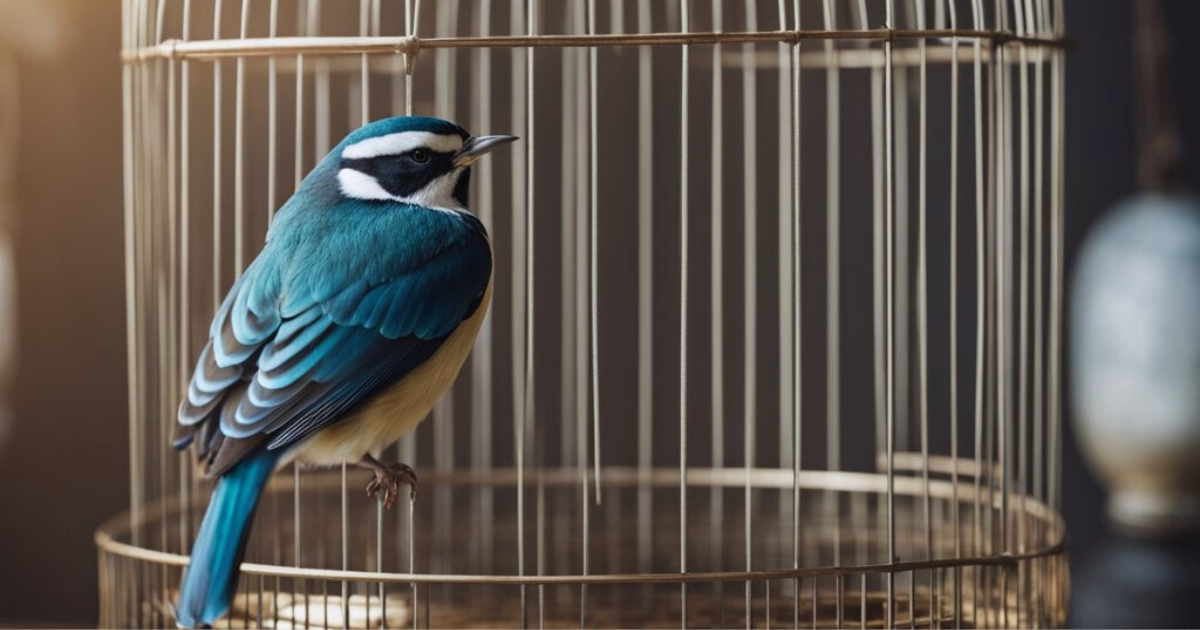As a devoted pet bird owner, you know the joy and companionship these feathered friends bring into our lives. However, one of the most frustrating and persistent challenges we face is dealing with pesky bird mites. These tiny parasites can wreak havoc on our beloved birds’ health and well-being, causing discomfort, feather damage, and even transmitting diseases. Fear not, though, as we’ve got you covered with this comprehensive guide on how to get rid of bird mites on pet birds naturally.
Understanding Bird Mites
What are Bird Mites?
Bird mites are tiny, eight-legged parasites that feed on the blood and feathers of birds. These microscopic creatures are often invisible to the naked eye, making infestations difficult to detect until they’ve become well-established. Common types of bird mites include the red mite, the northern fowl mite, and the chicken mite, each with its own unique characteristics and behaviors.
Signs and Symptoms of Infestation
If your beloved pet bird is suffering from a mite infestation, you may notice physical signs such as restlessness, feather loss, skin irritation, or even small red or black spots on the bird’s skin or feathers. Additionally, behavioral changes like excessive preening, lethargy, or loss of appetite can also indicate the presence of these unwanted guests.
Risks and Consequences
Bird mites can pose serious health risks to your feathered companions if left unchecked. These parasites can cause anemia, skin infections, and even transmit diseases like avian malaria or salmonella. In severe cases, bird mites can lead to respiratory problems, weight loss, and even death if the infestation is not addressed promptly. Furthermore, certain types of bird mites can also be transmitted to humans, causing itchy skin rashes and discomfort.
Natural Preventive Measures
Maintaining a Clean Environment
The first line of defense against bird mites is maintaining a clean and hygienic environment for your feathered friends. Regular cleaning and disinfection of cages, perches, and nesting areas can help eliminate potential breeding grounds for these parasites. Additionally, removing any accumulated debris, feathers, or droppings can discourage mites from establishing a foothold in your bird’s living space.
Proper Nutrition and Hydration
A well-nourished and hydrated bird is better equipped to fight off mite infestations. Providing a balanced diet rich in essential vitamins, minerals, and proteins can boost your bird’s overall health and immune system, making it more resistant to parasites. Ensuring access to fresh, clean water is also crucial for maintaining your pet’s well-being and preventing dehydration, which can exacerbate mite infestations.
Stress Reduction
Stress can weaken a bird’s immune system, making it more susceptible to mite infestations and other health issues. By minimizing stress factors in your pet’s environment, such as loud noises, sudden changes, or overcrowding, you can help keep your feathered friend calm and relaxed. Additionally, providing enrichment activities, like toys and perches, can help alleviate boredom and promote natural behaviors, further reducing stress levels.
Natural Treatments for Bird Mite Infestations
Essential Oils and Herbal Remedies
Nature’s bounty provides us with a treasure trove of natural remedies that can be effective in combating bird mites. Essential oils like neem, lavender, and tea tree oil possess natural insecticidal properties that can help eliminate mites while being gentle on your pet bird. Herbal preparations, such as garlic or thyme infusions, can also be used for bathing or misting, providing a safe and natural way to rid your bird of these pesky parasites.
Diatomaceous Earth
Diatomaceous earth is a naturally occurring sedimentary rock that has been proven effective in controlling various types of insect pests, including bird mites. This fine powder works by physically abrading the exoskeletons of mites, causing dehydration and eventually death. When applied carefully and according to instructions, diatomaceous earth can be a safe and eco-friendly option for treating bird mite infestations.
Neem Oil
Derived from the neem tree, neem oil has long been used in traditional medicine for its insecticidal and medicinal properties. When it comes to bird mites, neem oil can be an excellent natural solution. Its active compounds, like azadirachtin, disrupt the life cycle and reproductive processes of mites, effectively controlling infestations. Neem oil can be safely applied to your bird’s feathers and living areas, providing a long-lasting and non-toxic solution.
Integrated Pest Management (IPM) Approach
Combining Natural Methods
For effective and long-lasting control of bird mites, it’s often necessary to employ an integrated pest management (IPM) approach. This strategy involves combining multiple natural treatments and methods to create a comprehensive defense against these persistent pests. By utilizing essential oils, diatomaceous earth, neem oil, and other natural remedies in a consistent and persistent manner, you can maximize the chances of eliminating the infestation and preventing future outbreaks.
Environmental Management
In addition to natural treatments, managing the environment plays a crucial role in controlling bird mites. Maintaining proper humidity and temperature levels in your bird’s living space can discourage mite proliferation. Additionally, eliminating potential hiding spots and breeding grounds, such as cracks, crevices, or cluttered areas, can help reduce the mite population and prevent re-infestations.
Monitoring and Evaluation
Regularly monitoring your pet bird and its living environment is essential for detecting and addressing any signs of mite infestations early on. Conduct thorough inspections, checking for physical and behavioral indicators of mites, and adjust your treatment strategies accordingly. Persistence and vigilance are key when dealing with these persistent pests, as overlooking even a small population can lead to a full-blown infestation.
Professional Assistance and Veterinary Care
While natural remedies can be effective in controlling bird mites, there may be instances where professional assistance or veterinary care is necessary. If the infestation persists despite your efforts or if your pet bird exhibits signs of illness or distress, it’s crucial to seek the guidance of a qualified avian veterinarian. These professionals can provide expert advice, recommend specialized treatments, and ensure the overall health and well-being of your feathered companion.
People Also Read:
Conclusion
Protecting your pet birds from the discomfort and potential health risks posed by mites is a responsibility we all share as responsible bird owners. By embracing natural and eco-friendly methods, such as essential oils, herbal remedies, diatomaceous earth, and neem oil, you can effectively combat these persistent pests while ensuring the safety and well-being of your feathered friends.
Remember, consistency and patience are key when dealing with bird mite infestations. Incorporate an integrated pest management approach, combining multiple natural treatments and environmental management strategies, for the best chance of success. Additionally, seek professional assistance when necessary, and always prioritize the health and comfort of your beloved pet birds.
By following these natural methods and adopting responsible pet ownership practices, you can create a harmonious and mite-free environment for your feathered companions, allowing them to thrive and bring you joy for years to come.
FAQs
Are bird mites harmful to humans?
While bird mites primarily infest birds, some species can occasionally bite and cause skin irritation in humans. However, they cannot complete their life cycle on human hosts and will eventually die off without a bird host. Proper hygiene and avoiding direct contact with infested birds can prevent transmission to humans.
How long does it take for natural treatments to eliminate bird mites?
The duration of natural treatments for bird mite infestations can vary depending on the severity of the infestation and the specific methods used. In general, it may take several weeks or even months of consistent application and environmental management to completely eliminate a mite population.
Can bird mites survive without a host?
Bird mites are obligate parasites, meaning they cannot survive for extended periods without a host bird. While they may temporarily persist in the environment, they ultimately require a bird host to complete their life cycle and reproduce.
Is it safe to use essential oils around pet birds?
While many essential oils can be effective against bird mites, it’s crucial to use them with caution around pet birds. Some essential oils, such as tea tree oil or eucalyptus, can be toxic to birds if inhaled or ingested in high concentrations. Always dilute essential oils properly and avoid direct application to your bird’s feathers or skin without consulting an avian veterinarian.
How can I prevent future bird mite infestations?
To prevent future bird mite infestations, maintain a clean and well-ventilated environment for your pet birds, provide a balanced diet and fresh water, and regularly inspect your birds for signs of mites. Additionally, quarantine new birds before introducing them to your existing flock and practice good hygiene when handling or cleaning bird cages and accessories.

